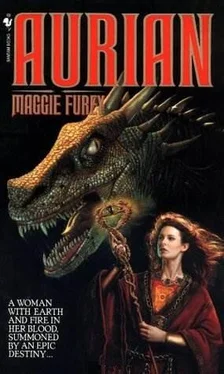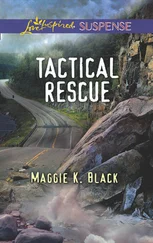One by one, the glittering nights and dazzling days ticked by, like bright beads strung on a thread of travel. Yazour, to his frustration, had come no nearer to finding the would-be assassin, but, perhaps due to his increased vigilance, there were no further attempts on Anvar’s life. They saw little of Hanhn. As the miles increased between the Prince and his kingdom, he grew more aloof and shorter of temper, and most of his people were content to give him a wide berth. But at least he left Aurian and Anvar alone, and they were glad, though Aurian often wished that she could talk with him, and perhaps ease his mind. She knew how it felt to be exiled, and understood that he must be regretting his decision to relinquish his throne. She often found herself wondering what the future held for him.
Anvar, however, had his own ideas about the cause of the Khisal’s fey mood. From certain veiled comments that Harihn had made, and from the way his eyes tended to linger specula-tively on Aurian, and coldly on himself, Anvar began to suspect that his news about Sara’s barrenness had caused a change of heart in the Prince. In short—he was thinking of returning to claim his throne, and he needed Aurian’s help to win it. Unaccustomed to thinking of women as having free will, he saw Anvar as the main obstacle to his plan. Though he had no actual proof, Anvar began to have a fair suspicion that Harihn had been the one who had lamed his horse. Who else could have passed Yazour’s guards unchallenged? The two Magefolk were heavily outnumbered, however, and still in need of the Khisal’s help to survive the desert crossing. Anvar kept his thoughts to himself, but as the journey continued, he remained constantly on his guard, well aware that the farther they went, the more likely Harihn was to make another attempt on his life.
Yazour guided them well, steering an unerring course along the ancient route that crossed the desert from oasis to oasis. Every two or three nights, a ragged outcrop of rocks would be seen in the distance, emerging from the mantle of gem dust, and the horses and mules would snort eagerly, picking up their pace as they scented water ahead. The Prince and his followers would camp beside a stony basin that cradled a sweet pool formed by springs originating deep within the ridge that stretched, according to Yazour, right across the desert like a knobbly spine, most of which was buried beneath the jeweled sands. Each life-giving source of water had a name, and he taught the Mages to recite them in order, something that his people learned in infancy. They encountered the first, Abala, on the third night of their trek, and this was followed by Ciphala, Biabeh, Tuvar, Yezbeh, and Ecchith, which would approximately mark the halfway point of their journey. Fair Dhiam-mara followed, then Varizh, Efchar, Zorbeh, Orbah—and finally, Aramizal.
“Wait until we reach Dhiammara!” Yazour smiled at the Mages. “That, to my mind, is the most spectacular sight in the desert, and well worth this hard journey to see.”
“Romantic nonsense!” scoffed Eliizar, who had traveled the desert regularly in his youth. “The fairest oasis in this waste is Aram izal—because you begin the final step of the journey, and can see the mountains of the Winged Folk rising in the distance to mark the end of the desert.”
“Winged Folk, indeed!” Yazour scoffed. “And you call me romantic! You might as well expect to see a dragon!”
“Nonetheless,” Eliizar insisted, “they exist. Their citadel is high in the inaccessible peaks, where men cannot climb.”
“How do you know it’s there, then?” Yazour countered.
“It is there,” Aurian interrupted, surprising them both. “I have it on the best authority.” She smiled, remembering her friend the Leviathan, and looked dreamily away to the north, as though trying to see across the intervening miles to the soaring lands of the Skyfolk.
Aerillia, the city of the Winged Folk, was carved out of the highest peak of the northern mountain range. The palace, an airy confection of hanging turrets and terraces, was situated on, and within, the topmost pinnacle, and Raven’s tower room commanded a breathtaking view over the entire city. She was looking out of the window now, gazing over the snowy crags below at the lights that twinkled sharply in the clear icy air. Her shoulders were slumped in dejection, causing her great wings to droop, their glossy, iridescent black tips trailing unheeded on the floor.
“Raven?”
The Princess spun round, scowling. “Go away, Mother! I refuse to marry the High Priest, and that is my final word on the matter.”
“It is not!” Grief and strain had etched new lines on Flamewing’s face, but the Queen’s voice still carried its customary ring of authority. She paced the small circular room, her red-gold wings rustling, her expression defensive and angry. “You will do as you’re bid,” she told her daughter. “You are a Princess of the Blood Royal, Raven, daughter of a Queen. You were brought up to recognize that you have responsibilities to your people and to the throne—one of them being that you must marry to advantage—”
“Whose advantage?” Raven cried. “Mine? Yours? If I marry that corrupt old monster, who will really benefit? He will, and that’s all! He can do nothing to help us, Mother. He’s deceiving you, and all our people. He has no influence with the Sky God. Have his sacrifices made any difference? All those lives—the lives of our people, which we swore to protect— wasted, and still this dread and untimely winter is upon us. And now his price for our salvation is my hand. Which coinci-dentally will put him up an unassailable position of power. GUI you not see that he’s a fraud? How can you be so dense?”
“How dare you!” The sound of the blow seemed to echo in the silence that followed.
Raven staggered, horrified, her hand pressed to her fact and tears in her great, dark eyes. Never before had Flamewing raised her hand to her beloved daughter. “Mother, please.” Her voice was little more than a whisper. “You know the way of our people. We mate for life. If I wed Blacktalon, I will spend the rest of my days in misery with someone I fear and loathe. Though princesses must marry suitably, never has one been asked to submit to this. I beg you, do not force me to marry him. He is evil, I know it.”
Flamewing sighed. “Child, never in our history since the Cataclysm have we suffered peril like this. Never has there been such sudden and intense cold. Nothing will grow on our terraces. All the animals are dead, or have left for warmer climes. This winter kills everything it touches. Blacktalon’s intercession is our only hope. Our people are dying, Raven! I am more sorry than I can ever say, but I have no choice. Tomorrow you will wed Blacktalon, and that’s an end to it. Now—he wishes to speak with you, and you will be civil to him. Your people need you, Raven. You were brought up as a Princess—now you must act like one!” She swept quickly out of the room, as though the sight of her daughter together with the High Priest was more than she could bear.
Blacktalon’s head was bald, and painted all over with arcane designs and magical symbols. His face was haggard and cruel, with its hooked nose and burning, fanatic’s eyes. His wing feathers were a dull and dusty black, and his robes matched their color exactly. His arrogance in the presence of a royal princess was so obnoxious that Raven wanted to strike him. “I have come to make my felicitations to my bride on the eve of her wedding,” he said, leering. “How lovely you look, my dear. I can hardly wait.” He reached out greedy hands to touch her.
Raven backed away hastily, drawing her dagger. “Get away from me!” she spat. “I’d rather die than marry you, you filthy old vulture!”
Читать дальше












